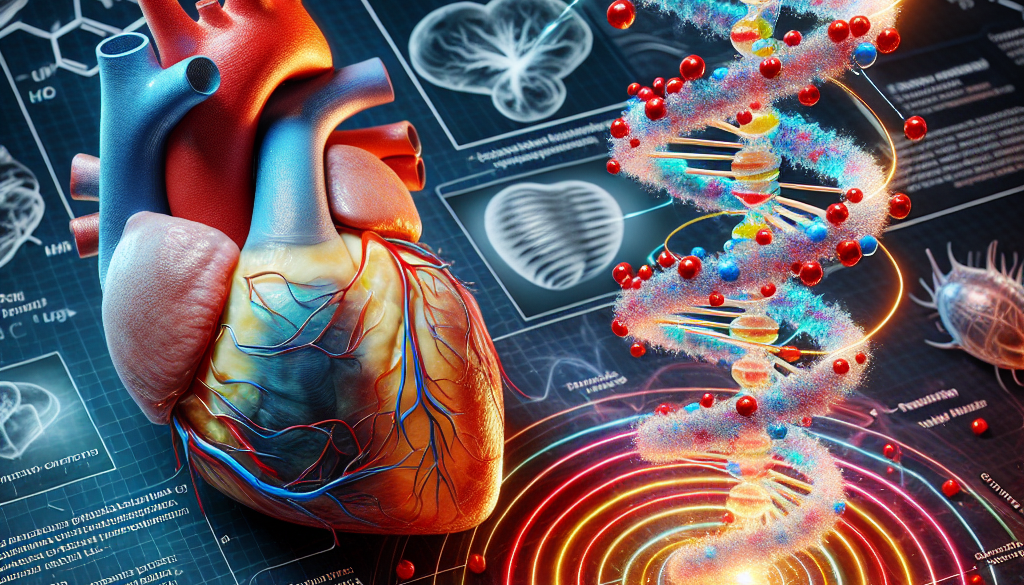Protein and Heart Health Functions: Vital Connections
-
Table of Contents
- Protein and Heart Health: Exploring Vital Connections
- The Role of Protein in Cardiovascular Health
- Types of Proteins and Their Impact on Heart Health
- Animal Proteins
- Plant Proteins
- Research on Protein Intake and Heart Health
- Protein Intake Recommendations for Optimal Heart Health
- Case Studies and Statistics: Protein’s Effect on Heart Health
- Conclusion: Understanding the Protein-Heart Health Connection
- Discover ETprotein’s Heart-Healthy Protein Products
Protein and Heart Health: Exploring Vital Connections

Proteins are fundamental components of all living organisms and play a crucial role in various bodily functions, including the health of the heart. The connection between protein intake and heart health is a subject of significant interest within the medical and nutritional sciences. This article delves into the vital connections between protein and heart health, exploring how different types of proteins can influence cardiovascular function, the potential benefits and risks associated with protein consumption, and the latest research findings in this area.
The Role of Protein in Cardiovascular Health
Proteins are made up of amino acids, which are essential for the repair and maintenance of body tissues, including the heart and blood vessels. The heart, being a muscle, requires a constant supply of amino acids to maintain its structure and function. Here are some ways in which proteins contribute to heart health:
- Muscle Maintenance: Proteins help in the repair and growth of cardiac muscle tissue.
- Enzyme Production: Many enzymes involved in heart function are proteins.
- Hormone Regulation: Proteins play a role in synthesizing and transporting hormones that regulate blood pressure and heart rate.
- Transporting Molecules: Proteins such as hemoglobin transport oxygen to the heart and other tissues.
Types of Proteins and Their Impact on Heart Health
Not all proteins are created equal when it comes to heart health. The source of protein—whether animal or plant-based—can have different effects on the cardiovascular system.
Animal Proteins
Animal proteins, such as those found in meat, dairy, and eggs, are complete proteins, meaning they contain all the essential amino acids. However, they can also be high in saturated fats and cholesterol, which have been linked to an increased risk of heart disease. Reducing the intake of red and processed meats can lower this risk.
Plant Proteins
Plant-based proteins, found in legumes, nuts, seeds, and whole grains, are typically lower in saturated fats and cholesterol. They are often associated with a lower risk of heart disease. Incorporating a variety of plant proteins can ensure the intake of all essential amino acids.
Research on Protein Intake and Heart Health
Several studies have investigated the relationship between protein intake and heart health. Here are some key findings:
- A study published in the American Journal of Epidemiology found that higher intake of plant proteins was associated with lower rates of coronary heart disease.
- Research in the Journal of the American Heart Association indicated that replacing red meat with high-quality plant protein sources could reduce the risk factors for cardiovascular disease.
- The Nurses’ Health Study and the Health Professionals Follow-Up Study showed that higher intake of protein from nuts, seeds, and legumes was linked to a lower risk of heart disease.
Protein Intake Recommendations for Optimal Heart Health
For optimal heart health, it is recommended to:
- Choose lean animal proteins, such as poultry and fish, and prepare them using heart-healthy methods like grilling or baking.
- Increase the consumption of plant-based proteins, which can contribute to a more favorable lipid profile.
- Limit the intake of red and processed meats to reduce the risk of heart disease.
- Balance protein intake with other nutrients, such as fiber-rich vegetables and whole grains, to support overall cardiovascular health.
Case Studies and Statistics: Protein’s Effect on Heart Health
Case studies and statistics further illustrate the impact of protein on heart health:
- A meta-analysis of 36 studies reported that substituting plant protein for animal protein led to modest improvements in cardiovascular risk factors, including blood lipids and blood pressure.
- The Adventist Health Study-2 observed that vegetarians, who typically consume more plant proteins, had a lower risk of heart disease compared to non-vegetarians.
Conclusion: Understanding the Protein-Heart Health Connection
In conclusion, the connection between protein and heart health is complex and influenced by the type of protein consumed. A diet rich in plant-based proteins can contribute to better heart health by reducing the risk of heart disease. It is important to consider the source of protein and aim for a balanced diet that supports cardiovascular function.
Discover ETprotein’s Heart-Healthy Protein Products
If you’re looking to incorporate high-quality proteins into your diet for better heart health, ETprotein offers a range of organic bulk vegan protein and plant proteins that are non-GMO and allergen-free. Their products, including Organic rice protein, clear rice protein, pea protein, clear pea protein, and more, are ideal for those seeking to improve their heart health through diet.
About ETprotein:
ETprotein, a reputable protein Chinese factory manufacturer and supplier, is renowned for producing, stocking, exporting, and delivering the highest quality organic bulk vegan protein and plant proteins. They include Organic rice protein, clear rice protein, pea protein, clear pea protein, pumpkin seed protein, sunflower seed protein, mung bean protein, peanut protein etc. Their offerings, characterized by a neutral taste, non-GMO, allergen-free attributes, cater to a diverse range of industries. They serve nutraceutical, pharmaceutical, cosmeceutical, veterinary, as well as food and beverage finished product distributors, traders, and manufacturers across Europe, USA, Canada, Australia, Thailand, Japan, Korea, Brazil, and Chile, among others.
ETprotein specialization includes exporting and delivering tailor-made protein powder and finished nutritional supplements. Their extensive product range covers sectors like Food and Beverage, Sports Nutrition, Weight Management, Dietary Supplements, Health and Wellness Products, and Infant Formula, ensuring comprehensive solutions to meet all your protein needs.
As a trusted company by leading global food and beverage brands and Fortune 500 companies, ETprotein reinforces China’s reputation in the global arena. For more information or to sample their products, please contact them and email sales(at)ETprotein.com today.












